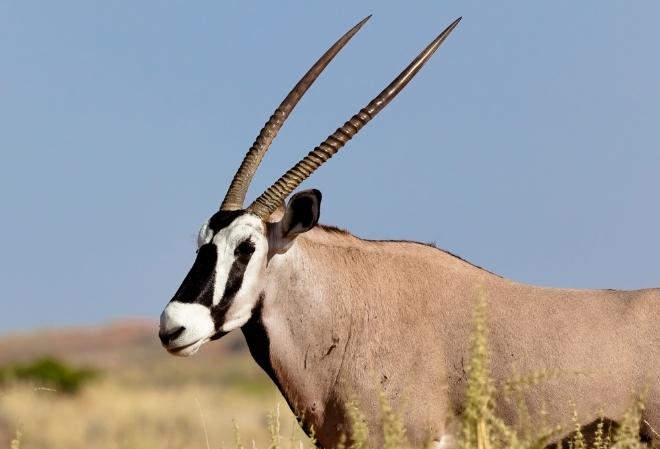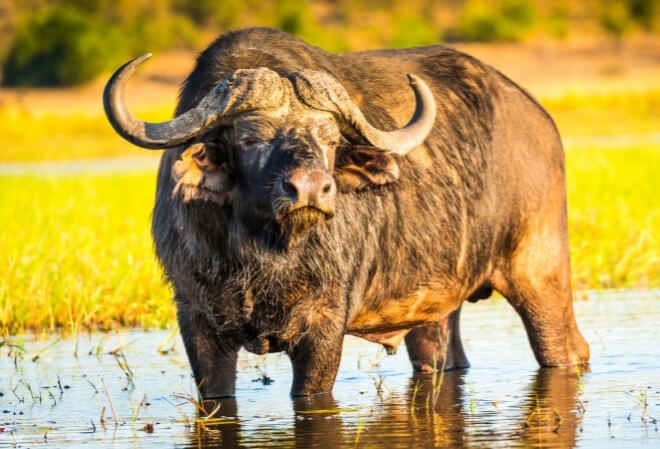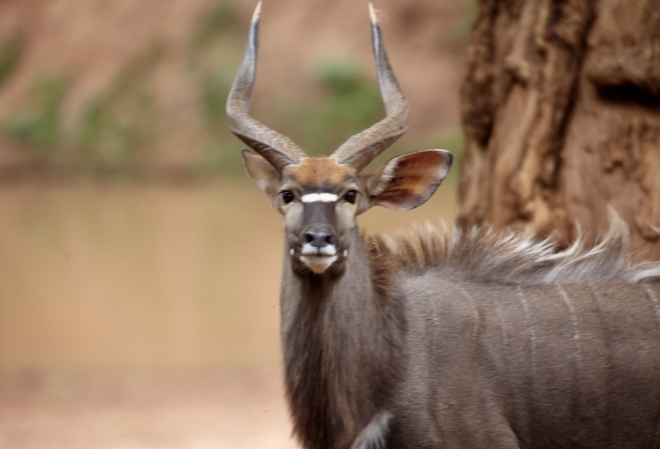We’ve put together the technical details of Oryx hunting in South Africa. Locally known as the ‘Gemsbok’.
You will get specific details about bowhunting and rifle hunting methods.
At Clearwater Safaris, we have 27 species roaming free. Roan, Springbuck, Buffalo, Giraffe, Kudu and many more..
Oryx (Gemsbok) Characteristics
Name: Oryx (Gemsbok)
Scientific Name: Oryx gazella
Weight (Female) : 100-200 kg
Weight (Male): 220 – 300kg
Shoulder Height: 120cm (Shoulder)
Mating Season: 9 month intervals
Bow Hunting an Oryx (Gemsbok) in South Africa
Equipment information
A minimum arrow weight: Minimum arrow weight of 450 grains (gr)
Draw weight: The minimum kinetic energy (KE) required for hunting impala is 55 ft/lb
Broadheads: Minimum of 100 grains (gr) to 125 grains (gr)
Fixed 3-blade broad head, Rage II mechanical broad head.
Fixed blade 2-blade broad head with bleeders
Shot placement
Broadside Shot
When placing the shot right behind the shoulder of the gemsbok, the shot should result in a high heart/lung shot that will have the gemsbok down in the least amount of time.
Quartering to shot
This shot is very risky and should not be attempted unless you are experienced and totally sure of your shot placement. It is recommended to place your arrow midway between the angle formed ty the front legs where the neck and the brisket joins.
Quartering away shot
Take care when using this shot as you risk penetrating through too much of the stomach. Be sure to place your arrow in the section formed by the legs, one third of the way from the bottom of the brisked to the top of the back.
Rifle Hunting Buffalo in South Africa
Equipment information
A medium bore rifle is recommended. Other recommended calibers include the following: 7 mm Rem Mag, 270, 308, 300 WSM, 7 X 57-, and 300-Win Mag.
Oryx (Gemsbok) Information
One of the larger antelopes with a striking appearance, long, spear like horns that can reach a length of 120cm, as well as a thick horse like neck the Gemsbok is one of the most majestic antelopes that you will encounter. They are gregarious animals and tend to congregate in groups of between 50 and 200 at a time. You will usually find more females than males in the larger herds, but mostly the herds will be mixed. The males tend to roam alone, marking their territory as they move around.
The female’s estruses cycles enable her to produce calves every 9 months. She comes into heat soon after giving birth. Their horns are used in combat, and they are lethal even able to kill lions. They can survive without drinking anything for much of the year as they get their moisture mostly from the food that they consume. Their body temperature can reach an astonishing 45 degrees, this is done to minimising water loss. The breeding male normally controls the harem of females and young. The bachelors normally form separate herds. After giving birth the female will hide her young for up to 6 weeks and will visit only while nursing a few times a day. The calf’s pale brown colour helps to camouflage and the striking black and white face making will only start to appear when ready to join the herd with his/her mother.





